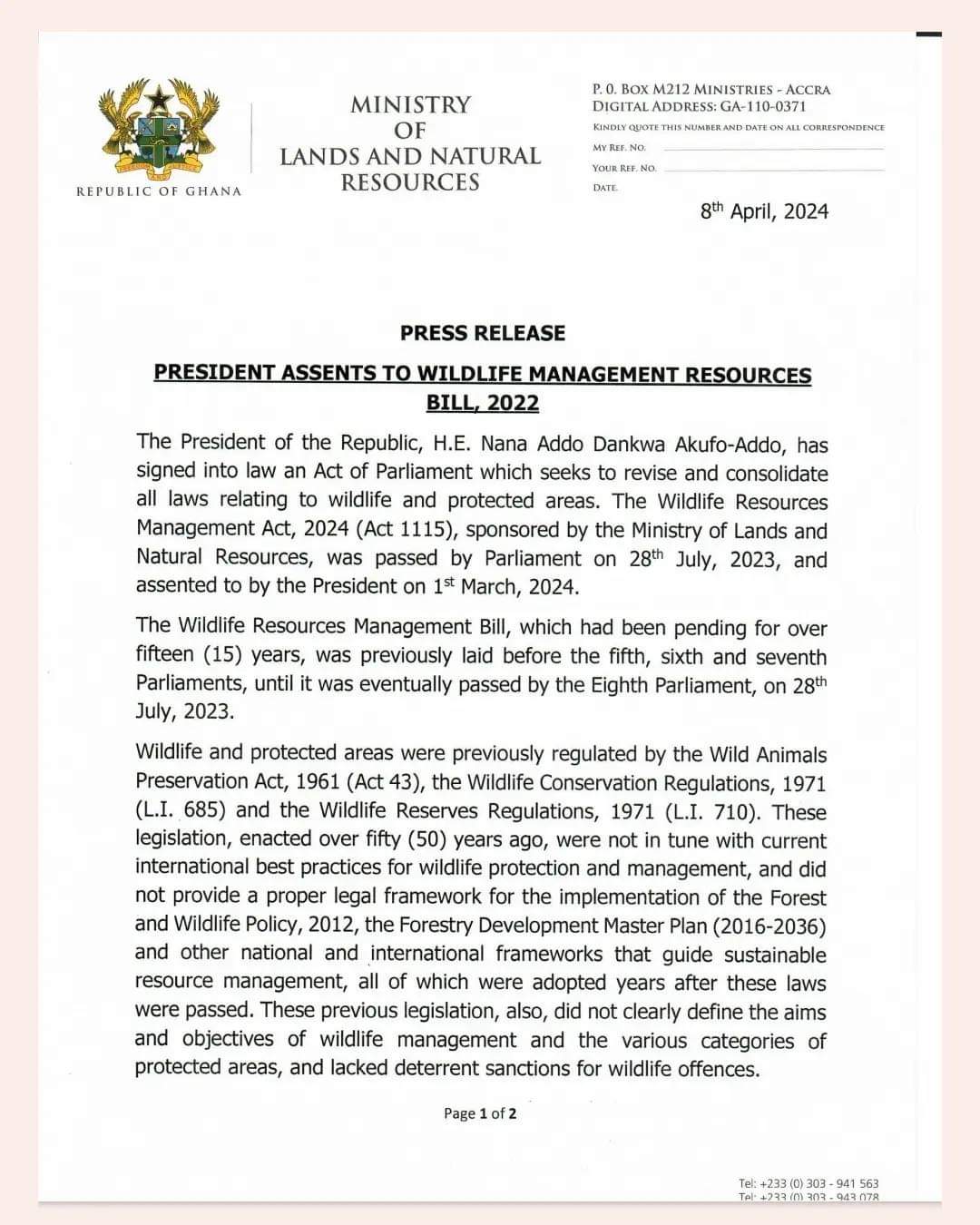
President Nana Addo Dankwa Akufo-Addo yesterday gave assent to the Right to Information Act at a brief ceremony at the Jubilee House in Accra.
The Presidential assent has operationalised Article 21 (1) (f) of the Constitution which states that "all persons have the right to information subject to such qualifications and laws as are necessary in a democratic society."
Although the RTI has finally become law, its implementation has been deferred to next year due to the financial consequences of its implementation. The delay is expected to enable the government make adequate financial provisions for the effective implementation of the law.
The RTI law will afford the public the opportunity to partake in policy formulation and other decision making processes. It will empower citizens to hold public institutions accountable for their actions and inactions to ensure that their interest is protected while ensuring that corruption is reduced to its barest minimum.
The right to information is recognised by the United Nations (UN), the Commonwealth and the African Union (AU) as a fundamental human right necessary for good governance.
President Akufo-Addo congratulated the 7th Parliament for its courage, sense of responsibility and commitment to good governance in passing the legislation.
The President said it was his expectation that the RTI law would enhance the quality of governance in the country and provide a critical tool in the fight against corruption in public life.
"I am very happy that this law has finally been passed and I did make the commitment that when it was brought to me, I would give my assent to it right away. It was, in fact, brought to me on Monday afternoon.
"But, on second thought, I felt that I should sign it in the plain view of the Ghanaian people for you to know that this long-winding parliamentary process has finally come to an end," President Akufo-Addo said.
The RTI bill was first drafted by the government in 1999 in cognizance of the international conventions and treaties on human rights and in order to operationalise the Constitutional provision
The draft was reviewed in 2003, 2005, and 2007 but was never presented to Parliament for passage. However, on February 5, 2010, an RTI bill was presented to the Fifth Parliament and referred to the Joint Committee on Constitutional, Legal and Parliamentary Affairs and Communications for consideration and report.
The joint committee consulted extensively with major stakeholders across the country but consideration of the bill was not finalised before the Parliament's term ended.
The Bill was again presented to Parliament on Tuesday, November 12, 2013 and referred to the Committee on Constitutional, Legal and Parliamentary Affairs for consideration and report.
The committee, during the consideration of the bill, received memoranda from the Forum for Former Members of Parliament, the Coalition on the Right to Information, Ghana, and the Office of the National Chief Imam and the Muslim Community Ghana.
Other institutions such as the Commonwealth Human Rights Initiative (CHRI) Africa Office, the Perfector of Sentiments Foundation (POS) and Persons with Disability Ghana also presented memoranda on the RTI bill to the committee.
The committee presented its report to the House in December 2014 and read for the second time in July 2015.
Due to the exigencies of the House and the need to expedite action, the bill was withdrawn and a new one re-introduced in Parliament on Tuesday, October 18, 2016.
It was again referred to the Committee on Constitutional, Legal and Parliamentary Affairs for consideration and report in accordance with the Standing Orders of the House.
The new bill incorporated all the amendments adopted by the House and those which were yet to be considered by the House.
However, the sixth Parliament dissolved in January 2017 without passing the RTI bill.
The current administration drafted a new bill and presented it to the 7th Parliament for consideration. Parliament, in March this year, passed the bill. The Presidential Assent gave life to the RTI law.
Read Full Story























Facebook
Twitter
Pinterest
Instagram
Google+
YouTube
LinkedIn
RSS